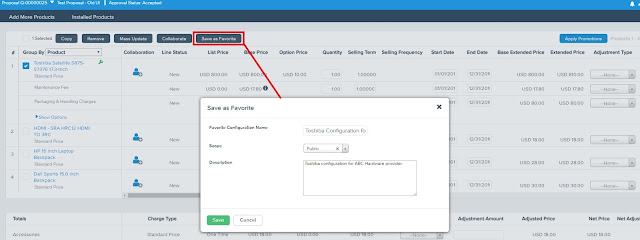Over the last few years, CPQ has
evolved as an inevitable sales process automation tool. Every organization is
endorsing CPQ in some or other forms. CPQ Vendors are also doing commendable
job by bringing new features like OOTB integration with other Quote-to-Cash (QTC)
components, integration with other in-premise or cloud solutions, predictive
analytics around pricing and margins, quotation intelligency and many more.
However, I feel, still from salesrep perspective, using and adopting CPQ
solutions need more innovation & simplicity of use. CPQ solutions are still
a bit complex and need larger learning curve for users. CPQ solutions seeking more
innovations!
Let me add few more points which
I discussed recently with few active CPQ users.
- Intuitive User Interface – Most of the Salesrep appreciate simpler user interface, which requires minimal navigation & clicks to create quote. Unfortunately, most of the CPQ solutions still have complex UI. Features like dynamic filters, type ahead & smart search, faceted navigations etc can highly reduce the complexity of navigation across multiple screens.
- New Generation UI – UI technologies have evolved greatly in last decade. Usage of features like drag & drop, collapsible trees/sections can present more information on single screen, and make interface simpler while still serve more content to the user.
- Performance – Performance has been a key demand for cloud CPQ solutions and, deplorably, it is still one of the top issues in CPQ implementations. With advanced browsers, which provides more caching and storage capabilities, and new generation JavaScript frameworks, its technically much more feasible to provide faster user response with light weight UI components.
- Mobility – SalesRep need mobility and Offline mode, if possible. It can greatly improve their efficiency of sale.
- One-click Configurations – Many Salesreps sale same or similar configurations most of the time. Features like my configurations, favourite configurations or last sold configurations with pre-approved packages, can make life much easier for them.
- Proactive over Reactive Features – Everyone loves proactive messages and processing to stop users from making mistakes, rather than allowing them to proceed and then showing error at the last. Similarly showing more accurate selling price during quotation, probability of approvals and sale, can help reduce the quotation time to a large extent.
- User Friendly Messages – Don’t provide shock with highly technical system errors and messages. Render simple, easy to understand messages and information.
Conclusion – Let the salesrep focus on sale, and have CPQ as a simpler solution to enable them, rather than have a complex software for them to learn every other time.





